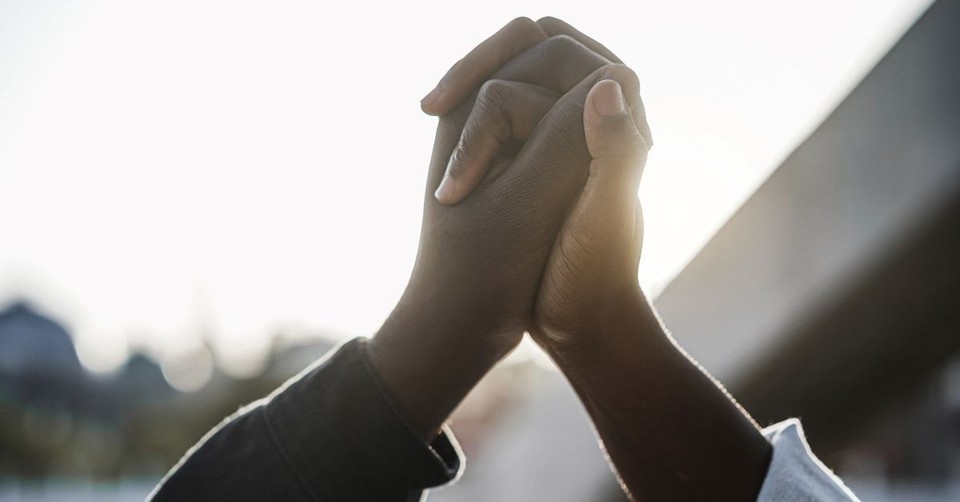3 Reasons You Should Know the Courageous Story of Shiprah and Puah

Shiphrah and Puah had chutzpah – they were bold.
If you don’t recognize their names, you likely know their story. Shiphrah (“splendid”) and Puah (“beautiful”) were the two Hebrew midwives who covertly defied Pharoah and prevented the genocide of Israel’s baby boys born during their watch, including one very important baby boy: the prophet and Israelite leader, Moses.
Their story is found in Exodus 1:1-22, but here is a synopsis.
Joseph, the governor of Egypt and protector of the Israelites, was dead. A new Pharaoh was on the throne, one who did not know Joseph, and did not care about the Israelites. Other than as a labor force.
This Pharaoh (believed to be Seti I, who reigned from 1318-04 B.C.) was a vicious ruler, and a paranoid one, too.
As he took inventory of his territory, he noticed the overwhelming number of Israelites, who had grown to exponentially numbers under Joseph’s reign as governor. There were so many, in fact, “the land was filled with them” (v. 7). With so large an enslaved population, Pharaoh worried they might get it into their heads to join an enemy nation, rise up against him, and leave the country. If that happened, Pharaoh would lose his labor force. His vast, prosperous kingdom—which included most of the Nile basin and as far north as Damascus in Assyria—would falter and eventually fade away.
Pharaoh was not about to let that happen, so he came up with a plan. He instructed his taskmasters to increase the Israelite’s workload so that the laborers would be too tired to procreate, thus curbing the population. It backfired. In fact, “the more [the Israelites] were oppressed, the more they multiplied and spread” (v. 12).
Plan B. Pharaoh called the Hebrew midwives. “When you are helping the Hebrew women during childbirth on the delivery stool,” he said. “If you see that the baby is a boy, kill him; but if it is a girl, let it live.”
Why just the boys, though? Boys were a threat in that they would grow up to be men, men capable of rebelling and revolting. Women would not. At least in that time and culture.
But even that plan backfired because Pharaoh had met his match in Shiphrah and Puah. They had a covert plan of their own, and it did not involve the systematic extermination of every baby boy.
What drove these two women—who some say were mother and daughter—to commit civil disobedience?
1. Their Fear of God, Not Pharaoh - Exodus 1:15-17
“The midwives feared God and did not do what the king of Egypt had told them to do; they let the boys live.”
Typically, we associate the word “fear” with being afraid or frightened. Scared. That was not the case with Shiphrah and Puah, however. The fear they felt toward God was one of “reverence, respect, awe.” Thus, their act of disobedience was in accordance with their knowledge and faith in the Divine. Their reverence for their holy, all-consuming, righteous God overruled their fear of the mere mortal, Pharaoh.
In short, Shiphrah and Puah were God-pleasers, not “men-pleasers” (Colossians 3:22).
Shiphrah and Puah weren’t naïve, either. They were well aware of the danger they put themselves in. They knew Pharaoh could execute them for defying his orders, but they did not care. But, again, their faith was in God Almighty.
So, too, were their lives. Although they did not know Matthew 10:28—“Do not be afraid of those who kill the body but cannot kill the soul. Rather, be afraid of the One who can destroy both soul and body in hell”—they believed it. They lived it.
2. They Weren’t Afraid to Lie (for Righteous Reasons) - Exodus 1:17-19
“Why have you done this?” Pharaoh demanded when he saw what was happening. “Why have you let the boys live?”
Shiphrah and Puah, straight-faced, answered, “Hebrew women are not like Egyptian women; they are vigorous and give birth before the midwives arrive.”
That takes chutzpah, to boldly, unflinchingly, lie to a tyrannical ruler.
Now, we know God does not want us to lie, since it’s a manifestation of our “old self,” which we’re told to put away once we become born-again (Colossians 3:9). Therefore, lying is considered a sin, because it’s typically done out of selfishness, in an attempt to “save one’s own skin,” so to speak.
But, therein, lies the difference with Shiphrah and Puah. They lied for selfless reasons. Righteous reasons. They did not lie to save themselves; they lied to save others.
Does that mean there are times when lying is justified? I would argue yes. I think of Nazi Germany when I say this. I think of the brave people, many of them Christians, who courageously hid their Jewish friends and neighbors in their homes or barns, then boldly lied to brown-shirted SS soldiers who came in search out these fugitives. And they lied, to save the lives of these hunted Jews. They lied out of selflessness, and to their own detriment—instant execution.
I think, too, of Rahab in Joshua 2, when she disobeyed Jericho’s king, who demanded that the spies be turned over. She refused and lied to the spies’ pursuers when they came knocking on her door. “True, the men came to me,” she said. “But I did not know where they were from. And when the gate was about to be closed at dark, the men went out. I do not know where the men went” (Joshua 2:4b). All the while, the spies were on her roof! Later, when the coast was clear, she helped them to escape out her window.
These three women—Shiphrah, Puah, and Rahab—bring new meaning to The Liar’s Club, don’t they?
Yes, there are times when lying is justified. Namely, when another person’s life is on the line. That lie is for righteous reasons, to save the literal “skin” of someone else.

Photo Credit: ©Getty Images/Mongkolchon Akesin
3. They Valued Life
It’s interesting to note that Shiphrah and Puah did not for one minute wrestle with the immorality or unethical moorings of Pharaoh’s edict. It was wrong. Period. Their faith told them so.
God is not about destroying life. He created (and continues to create) life. Therefore, He highly values life. All life!
So did Shiphrah and Puah. What Pharaoh told them to do went against God’s values, which they held as their own. They chose to protect the lives of those who could not protect themselves: the unborn.
Proverbs 31:8-9 says to “Open your mouth for the speechless, in the cause of all who are appointed to die. Open your mouth, judge righteously, and plead the cause of the poor and needy.” Again, these unsung Biblical heroines did not know this verse, yet they exercised it in their own brave, fearless way.
And in saving the baby boys from systematic extermination, they also saved their own nation of Israel and its future leader, who would later lead them—some two million of them, no less—away from slavery to freedom in the Promised Land.
For their bravery and faithfulness, God rewarded these women. He “was kind to the midwives and the people increased and became even more numerous. And because the midwives feared God, He gave them families of their own” (Exodus 1:20-21).
Their families, scholars believe, may have been in the Levitical line, the highest and most respected sect in the Israelite echelon. An honor and blessing, indeed.
When we read the story of Shiphrah and Puah, we can’t help but wonder if we would do the same in the face of such adversity and tyranny. We may even question whether it’s right to defy our government, especially in light of Romans 13:1-2, “Let everyone be subject to the governing authorities, for there is no authority except that which God has established. The authorities that exist have been established by God. Consequently, whoever rebels against the authority is rebelling against what God has instituted, and those who do so will bring judgment on themselves.”
We see from other instances in the Scriptures when it was not only right but justified, when non-violent, civil disobedience was condoned:
- Jehosheba: hid Joash, her brother and heir to the throne, when Athaliah went on a royal killing spree. The two children hid in the temple for six years, until Athaliah’s rule ended (2 Kings 11:3-4) and Joash took his rightful place as king.
- Daniel, Shadrach, Meshach, and Abednego: twice defied the Babylonian king’s edict to pray and bow down to his golden idol and worship it (Daniel 3:16-28, 6:1-28).
- Jesus: healed a man’s shriveled hand (Mark 12:1), healed a hemorrhaging woman (Luke 13:10-17), and plucked and ate wheat from a field (Matthew 12:1)—all of which were done on a Sabbath, when it was unlawful to do any kind of work.
- Peter and John: arrested for preaching about Jesus and were told to stop. “Whether it is right in the sight of God to give heed to you rather than to God, you be the judge; for we cannot stop speaking about what we have seen and heard” (Acts 4:19-10). Later, these same rulers confronted the apostles again and reminded them of their command to not teach about Jesus. To which they replied, “We must obey God rather than men” (Acts 5:29).
We are not to blindly, unconditionally follow every government edict or authority. There are times (rare times) when we believers today are also justified in our disobedience.
- When a government’s laws are in direct conflict/violation of God’s laws and commands.
- When a government promotes/practices evil (i.e., genocide).
- When a government prohibits the worship and proclamation of God and His Gospel.
In conclusion, I defer to the late theologian, John Stott. He says in his commentary on Romans 13, “We are to submit right up to the point where obedience to the state would entail disobedience to God. But if the state commands what God forbids, or forbids what God commands, then our plain Christian duty is to resist, not to submit, to disobey the state in order to obey God…This is the strict meaning of civil disobedience, namely disobeying a particular human law because it is contrary to God’s law… Whenever laws are enacted which contradict God’s law, civil disobedience becomes a Christian duty.”
Photo Credit: ©GettyImages/DisobeyArt

Originally published March 16, 2022.







